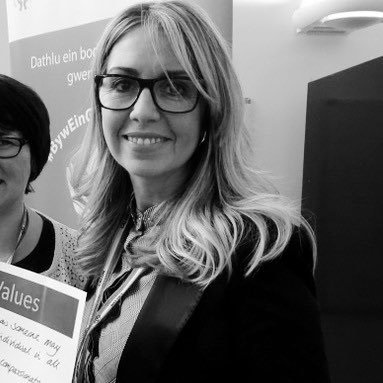Going for Chartership
By Lee Leyshon
January 15, 2021

The ultimate Chartership was something I considered doing for a few years but it took a bit of encouragement, cajoling, and a fair bit of arm-twisting to convince me I was at the right point in my career and ready for the challenge.
And thank goodness for those peer supporters, mentors, and all round fellow professionals who inspire me every day because in June this year I achieved Chartership status — and what a feeling it was!I made sure that I prepared well and knew what to expect by speaking to colleagues who had already gone through the process, making sure I was on top of my CPD, and using the CIPR Chartership resources available.
Attending a workshop to go through the details of how the day itself operates provided me with lots of reassurance and the speakers were able to clarify queries based on their experiences so I would definitely recommend attending one if you get chance.
As the Chartership day approached – much like the rest of 2020 – it was postponed indefinitely as a consequence of the Covid-19 pandemic although it wasn’t too long before CIPR were up and running with a number of online assessment days to choose from.
Game was back on!
The Case Study documents were sent through two weeks before and included all the relevant operational details of how to join virtually and how the day itself would work. And it worked like clockwork, thanks to the brilliant organisation of Maz and the CIPR team which was no mean feat in the circumstances.
The assessment day itself was intense, challenging, robust, and certainly put us through our paces. But that felt good – it provided the rigour that Chartership deserves.
Working in your groups, you will feed off, explore, and draw on each other’s contributions to present your rationales and points for each of the focused the themes of Ethics, Strategy, and Leadership based on the case studies supplied. The assessor for each theme had different approaches to how they questioned you and facilitated the discussion and it was invaluable when these esteemed practitioners shared their knowledge, expertise and experience in relation to each discussion at the end.
Having the opportunity to present your two year CPD plan after each of the assessed sessions enabled a reflective discussion and refinement of the plan based on what had transpired during the day. This gives you a meaningful CPD plan to go forward with as part of your ongoing development.
The moment that it’s official – you’re a CIPR Chartered professional – is one to treasure. After the virtual celebrations and confirmation ‘ceremony’, we were reminded of our obligations and the privilege being Chartered carries.
Chartership tells our colleagues that we are serious about our practice and that we not only practice the highest standards but we are also committed as leaders for our profession – supporting, empowering, and inspiring others to achieve their full potential too.
Being professionally accredited in this way has made a significant impact on the way I feel about my practice and profession. It has also enabled me to progress my career as within two months of achieving Chartership, I secured my new role as Assistant Director of Engagement and Communication.
My advice to anyone who is at a point in their career considering Chartership is to make sure you prepare thoroughly and then just go for it .